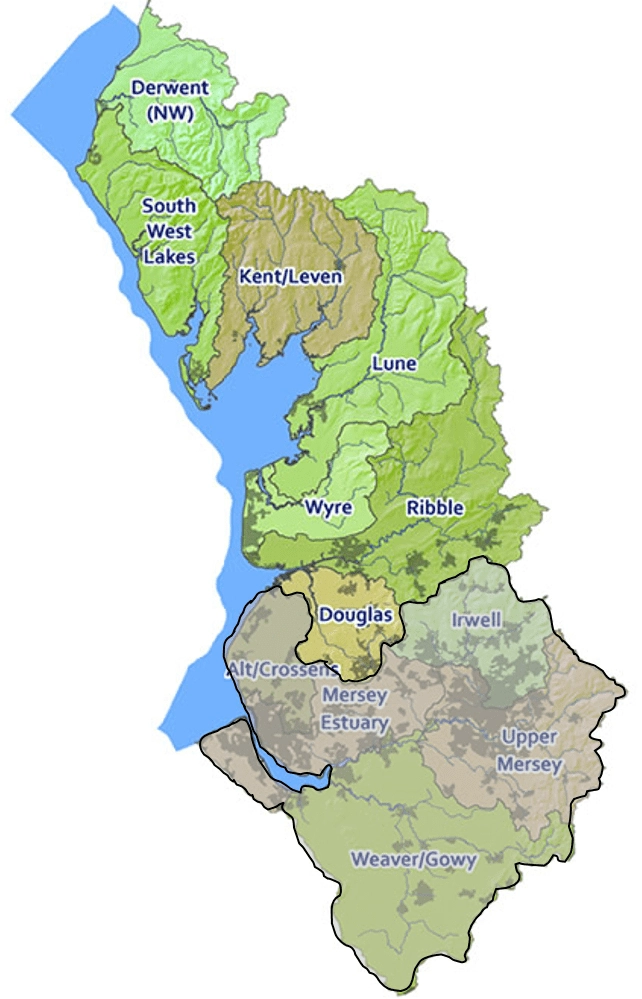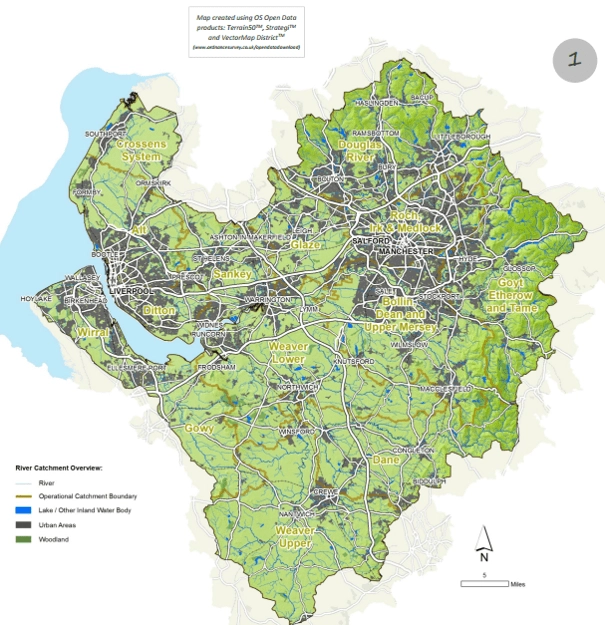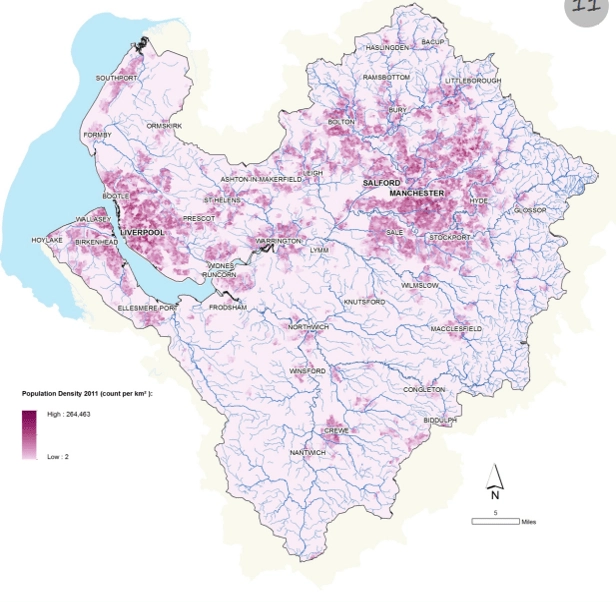Who we are
The Mersey Rivers Trust is a charity working in partnership with all those interested in improving the rivers and waterways of the Mersey. As a member of the national Rivers Trust movement, it is the Rivers Trust for the River Mersey and its catchment.
Our mission
To promote and encourage the preservation, restoration and development of the urban and rural waterways of the Mersey and their environs for people and wildlife.
To promote the use of and access to rivers for recreation, health and well-being of local people.
The Mersey Basin
The Trust covers a large area of the North West River Basin District and includes the rivers Alt, Crossens, Irwell, Tame, Goyt, Bollin, Weaver and more. These rivers feed into the River Mersey which begins in Stockport at the confluence of the rivers Tame (from Manchester) and Goyt (from Derbyshire). From there, the Mersey flows through Warrington and Widnes to Liverpool where it joins the Irish Sea.
The land use is varied throughout the catchment with large urban towns and cities neighbouring farm land, nature reserves, the Peak District and beaches. The Mersey Rivers Trust adopt a ‘source to sea’ methodology to bundle projects together, from up in the peaks to the Mersey estuary and coastline.
This holistic approach enables us to tackle a variety of issues and combine interventions for multiple benefits.
The Mersey Basin catchment is split into 5 Catchment Partnerships, 3 of which are hosted by Mersey Rivers Trust. They are part of the Catchment Based Approach (CaBA) which encourages joint projects and collaboration to achieve healthy rivers on a catchment-wide scale.
Our Catchment Partnerships consist of private sector companies, local groups, NGOs, government agencies and local authorities.


A very urban river catchment
The Mersey Basin includes the cities of Liverpool, Manchester and Salford which, in total, cover an area of over 125 square miles.
Issues for watercourses in urban areas include pollution, litter, sediment and flood risk. The top five urban diffuse pollution issues are:
- Urban run-off, including from highways
- Misconnections from residential properties
- Industrial and trading estate run-off
- Contaminated sediment in rivers
- Contaminated land alongside rivers
The Mersey Rivers Trust aims to tackle these issues through river surveys, interventions, public engagement and ongoing monitoring.
5 million people live in the Mersey Basin
Two of the ten most populated cities in the UK fall within the Mersey Basin - Liverpool and Manchester.
According to the 2021 census, the City of Liverpool had a population of more than 486,000 while the City of Manchester had 552,000.
Salford is the third city in the Mersey Basin. It is a much smaller city with just over half the population of Manchester.


The Mersey Rivers
A list of key rivers within the Mersey Rivers Trust catchment, split by our three operational delivery catchment areas.


